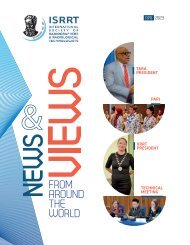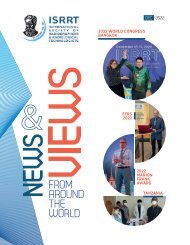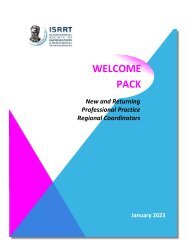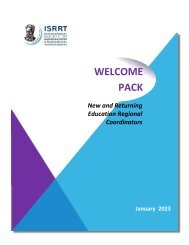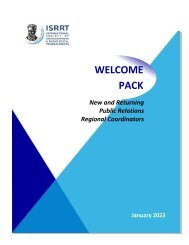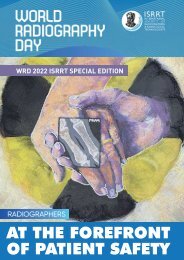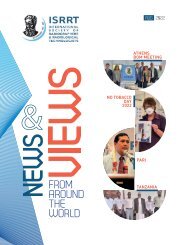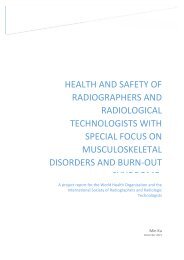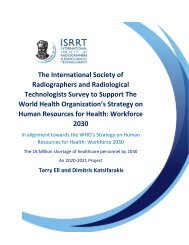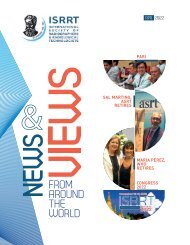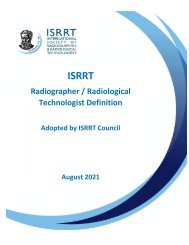ISRRT_COVID-19_book
Create successful ePaper yourself
Turn your PDF publications into a flip-book with our unique Google optimized e-Paper software.
to continue their academic activities through Moodle and Zoom applications without any<br />
charge. Following this, a high usage rate of Moodle and Zoom applications was observed,<br />
resulting in limited bandwidth and overloaded network connections. As a result, teachers and<br />
students were confronted with a number of technological obstacles, including low video<br />
quality and logging-in difficulties. Therefore, in order to avoid these problems, it was<br />
necessary to schedule the lectures at off-peak hours.<br />
It is essential to incorporate a student response system to get feedback from students during<br />
or after lectures in order to figure out their challenges and identify their perceptions 9,10 .<br />
Additionally, given the remote online opportunities, it is essential to evaluate their feasibility,<br />
the degree to which the intended learning outcomes of the curriculum are met, and the<br />
appropriateness of continuing online education. Unfortunately, the Department established<br />
a student response system after continuing some time of the online education. According to<br />
the responses received, it was realized that the students perceived that online education<br />
saves time and mode of easy access for timely submission of assignments. However, most<br />
students stated that they feel lonely and have difficulties paying full attention during the<br />
online lectures. Therefore the Department tried to engage more with the synchronous<br />
delivery method since the asynchronous delivery method does not allow for teacher-student<br />
or student-student interactions during the lecture time. The synchronous lessons were also<br />
created in a more student-centered, interactive manner using various tools available in video<br />
conferencing platforms such as polls and digital flashcards. Some students indicated that their<br />
financial situation made online learning challenging as they require modern communication<br />
and technical devices to be better involved. Students from low-income families found it<br />
particularly difficult to gain access to modern and advanced technological devices, and the<br />
Department continues to have a challenging task in addressing this issue.<br />
Delivery of the program - continuation of research activities<br />
The <strong>COVID</strong>-<strong>19</strong> epidemic had a significant impact on the research that the students were<br />
undertaking. The supervisors did not have a chance to meet their students physically, and the<br />
supervision and communications were done entirely online via Zoom, WhatsApp and e-mails.<br />
Therefore, as previously, it was difficult to understand the real needs of a student. Further,<br />
the data collection process from the laboratories, patients, and hospitals was interrupted due<br />
69




